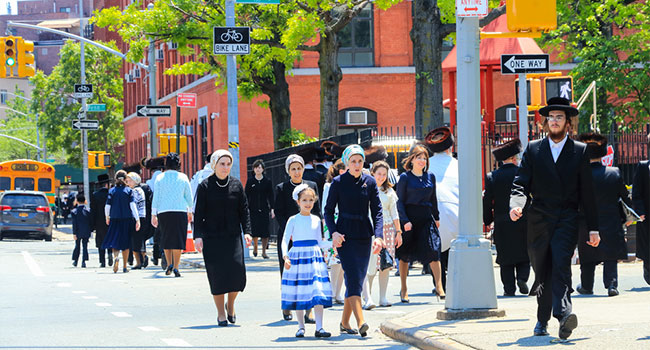
After Rise in Anti-Semitic Incidents, New York City Adds Cameras and Officers in Jewish Communities
The increase in video surveillance has not come without criticism, but many Jewish leaders are supporting the increased security efforts.
- By Haley Samsel
- Feb 13, 2020
Following a reported increase in anti-Semitic hate crimes across the U.S. but particularly in the New York and New Jersey area, New York City and state police are increasing their surveillance efforts in Orthodox Jewish communities.
The more intensive program includes 100 new NYPD cameras along with state-funded cameras and license plate recognition technology, according to the Gotham Gazette. Many Jewish leaders have asked for a more robust security presence in their communities to deter would-be attackers, such as those that targeted a Jewish deli in Jersey City.
Mayor Bill de Blasio announced the increase in January, stating that the cameras would be placed in WIlliamsburg, Crown Heights and Borough Park. About 150 more officers are patrolling those areas as well.
“An attack on the Jewish community is an attack on all New Yorkers,” de Blasio said in a statement. “These new security cameras will increase the NYPD’s visibility into these neighborhoods, and help our officers on the ground keep New Yorkers safe.”
In a similar move, Gov. Andrew Cuomo said he would use up to $680,000 in state funding for more cameras and license plate readers in Monsey and New Square, where communities of Orthodox Jews reside, according to the Gazette. The changes are permanent, representatives for the mayor’s and governor’s offices said.
But while many Jewish community members are supportive of the new steps, civil liberties advocates say that the spread of mass surveillance in the name of security could have long-term consequences.
“We shouldn’t engage in the business of dispensing with our privacy and security in some ways in order to gain a measure of comfort in others,” Donna Lieberman, executive director of the New York Civil Liberties Union, told the Gazette.
She noted open questions about how the video surveillance footage is stored, who has access and if it can be shared with different agencies.
“This is important because whatever benefits are anticipated, video surveillance doesn’t just capture the images of people who want to be on camera or who are engaged in wrongdoing. It captures everybody who goes by, and that is probably hundreds of thousands of people a month,” Lieberman said.
At the same time, Jewish institutions and synagogues in the New York region and across the country have been working around the clock to secure their facilities through more technology and security personnel. Most have welcomed support efforts from local governments as well as federal funding for their own security programs.
Michael Masters, the national director of the Secure Community Network, a nonprofit working with Jewish groups, told The New York Times that he has “witnessed a change in the mindset of the community” over several years when it comes to security.
“Whereas before people may have asked whether it was really necessary to have an organized, formal security program, now they are asking much more frequently, ‘How do I do it?’” Masters said.
About the Author
Haley Samsel is an Associate Content Editor for the Infrastructure Solutions Group at 1105 Media.